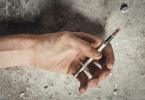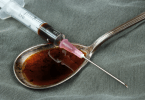In 2016, almost 1 million cases of heroin use were reported in the United States alone. That number represented a steep rise since similar figures have been tracked going back to 2007.
If you have a family member or friend struggling with heroin it can present a significant hardship for both them and you.
For them, they’re locked in a fight to take their life back from the jowls of addiction. For you, you’re trying to figure out ways to support them without enabling their problem.
Our team at Find Rehab Centers understands the struggle you’re facing. To help you better navigate having a healthy relationship with addicted close friends and family members, we’ve compiled this list of our top 5 tips on how to help a heroin addict.
1. Get Educated
The most important thing you can do to provide opiate addiction help to a loved one is to try and understand what the person is going through.
It can be a gut reaction to be disappointed, upset, and argumentative with an addict. This is natural given your frustration.
Still, meeting a person’s addiction with anger will not solve the problem.
To be productive when dealing with addiction you have to ask yourself things like, what is an opiate addiction? How has heroin taken over my loved one’s body?
Being able to understand where the addict in your life is coming from will help you provide the correct kind of support to help them overcome their struggle.
2. Be Wary of Providing Resources That Allow Addiction to Continue
Very few addicts have the resources they need to support themselves through their addiction. After all, addiction often consumes one’s life.
This consumption makes it difficult for an addict to hold down a job and acquire the means to pay for their habit which can cost thousands of dollars.
Bottom line, there’s a good possibility that your loved one is receiving support that allows them to stay addicted. It’s your job to limit that support.
For starters, you should not give an addict spending money. Very few addicts will come out and openly admit that the money they’re asking for is for drugs. You should assume it always is.
If you would like to support a loved one with an opiate addiction by giving them money for food or transportation expenses, buy them the food, put the gas in their car, pay for their bus pass, etc.
Don’t give them the money to do it themselves.
Housing is another key resource addicts often get from family members. Asking an addict to help contribute to the rent or at very least, making sure that they know drug use in your home is grounds for expulsion can create discomfort for them. This discomfort may lead them to take recovery seriously.
3. Know That Drug Abuse Is a Family Addiction and Protect Yourself
Addiction in a family is rarely isolated to just the person struggling with drug abuse. The effects of addiction permeate into the lives of those who surround the drug abuser as well creating a family of addicts.
Do you spend large portions of your day worrying about your family member’s relationship with drugs? Do you or other members of your family plan large portions of your day around accommodating the person in your household’s addictive lifestyle?
If you answered yes to either of those questions, you’ve fallen victim to their addiction.
To help prevent this from happening or change the trajectory you’re on, setting boundaries is extremely important.
Not allowing the use of drugs in the house. Not allowing drug using friends over. Not allowing your family member or friend to be present in your home while high.
Those are all examples of boundaries you can set so you can keep your home free of the contagious negative effects of addiction.
4. Make Sure Your Family Is on the Same Page
In order for you to be able to create a non-enabling environment and support a family member going through the stages of opiate addiction, it’s important your non-drug using family members are on the same page.
As you become educated in regard to addiction by reading articles like this one, share the information with family members. Help walk them through how to react to certain situations. Be united in your boundaries.
All it takes to enable an addict is one person. Make sure that no one in your household is that person by having a cohesive, healthy support plan for your addicted family member or close friend.
5. Work to Get Them into Treatment
Acceptance of one’s addiction is the first step to recovery. The next step is finding comprehensive help to provide an addict with the tools they need to get clean and stay that way.
If you have a family member or friend struggling with addiction, the end game you should always be working towards is getting them into recovery.
There are a lot of options when it comes to rehab. Inpatient programs offer comprehensive onsite treatment. Outpatient programs offer addicts the flexibility they need to manage their lives and get healthy.
Whatever option is best for your friend or family member, do everything you can to support them in their discovering the rehab program that’s right for them.
Wrapping Up Tips on How to Help a Heroin Addict
If your loved one is struggling with addiction to a powerful opiate like heroin, you’re probably looking for tips on how to help a heroin addict. It’s important that you don’t judge or mentally abuse someone struggling with addiction as that will make matters worse. It’s also important that you set boundaries so you don’t enable their addiction.
Practicing the tips listed above will give you a strong foundation when it comes to striking that balance of support. It will also guide your loved one towards the long-term help they need.
If you’re looking for a qualified rehab facility to get your friend or family member’s life back, our team at Find Rehab Centers can help.
Our rehab directory is extensive, easy to use and not for profit. We can help you get matched to centers that you can access easily and that can provide you the unique support your loved one needs.
Use our directory and let us help you find the answer to your loved one’s addiction problem.
For more information about addiction, read more on our blog.

















